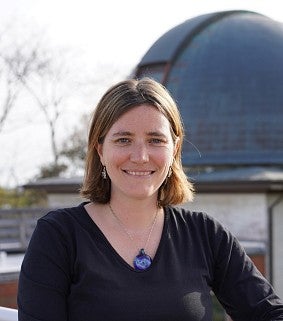Biography:
Yvette Cendes is an academic expert in transient radio astronomy- signals that change over time instead of remaining constant. In practice, this covers a host of exciting phenomena, ranging from black holes that shred stars in events known as Tidal Disruption Events (TDEs), supernovae, and looking for (natural) radio emission from exoplanets. Most recently, Cendes has discovered that many black holes "burp" years after they swallow a star and are radio bright several years after a TDE occurred despite no radio emission at earlier times. She was also on the team that discovered the closest black holes to Earth, called Gaia BH1 and Gaia BH2.
In addition to research, Cendes is the astronomy editor for the Guinness Book of World Records and writes regularly for popular science outlets such as Astronomy, Discover, and Scientific American. She also runs a top 100 Reddit account, /u/Andromeda321, where her "astronomer here!" comments are read by millions of people around the world.
Recent Media:
- Black hole caught snacking on star far from host galaxy’s center (Astronomy, Oct. 24, 2025)
- Black holes can die, but the process – hawking radiation – is incredibly slow (Discover, Sept. 4, 2025)
- Astronomers discover a perfectly spherical supernova remnant (Astronomy, July 16, 2025)
- Black holes and the new way astronomers using Gaia probe found the closest known to Earth (KATU, March 20, 2025)
- Scientists alarmed as Rubin Observatory changes biography of astronomer Vera Rubin amid Trump's push to end DEI efforts (Space.com, Feb. 11, 2025)
- Massive star's gory 'death by black hole' is the biggest and brightest event of its kind (Space.com, Aug. 12, 2024)
- How do you find a black hole? An astronomer explains the thrilling hunt (Astronomy, May 1, 2024)
- Type Ia supernovae: Inside the universe’s biggest blasts (Astronomy, Dec. 8, 2022)
- Researchers spy a fast radio burst with a periodic signal (Astronomy, July 28, 2022)
- Gravitational-wave observatory amasses discoveries (Astronomy, June 17, 2022)
- How do black holes swallow stars? (Astronomy, Dec. 8, 2021)


